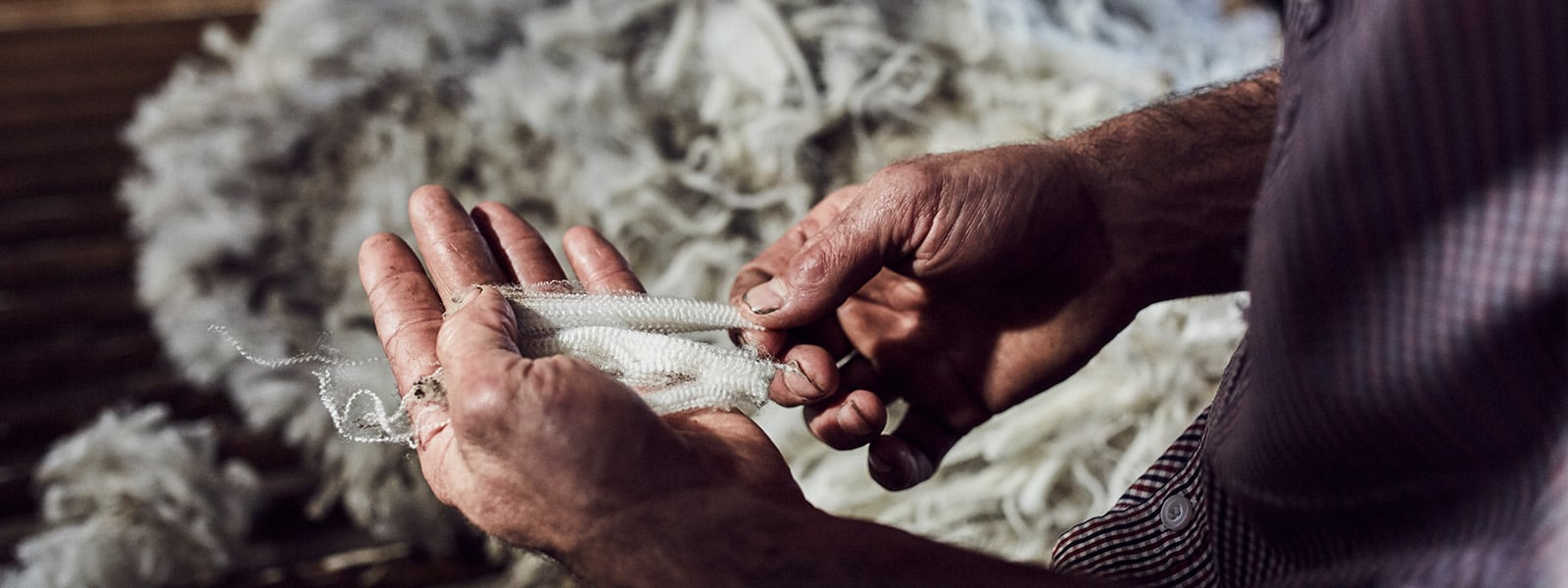Sourcing traceable wool will provide your brand with numerous opportunities to showcase the environmental, ethical and sustainable characteristics of your supply chain.
The process of tracing wool textiles back to the source and throughout the supply chain has many benefits but can be complicated and depends on the goals of the brand, the supply chain and the product being traced.
Why traceability is important to the textile industry
Ethical working conditions
Dignified working conditions, fair pay, respect and inclusivity along the supply chain are important values for all brands. Traceability is the first step in creating transparency across ethical issues in your supply chain.
Environmental impacts
Pollution, resource depletion and waste in the fashion industry can be reduced through collaboration along the supply chain. Tracing your supply chain enables you to begin assessing the environmental impact of production and find solutions to these impacts.
Market opportunity
Consumers are using their purchasing power to act on issues such as the environment and animal and worker welfare. Creating a traceable supply chain is an opportunity to champion the provenance of your product, verify your product claims and achieve a premium for your product.


Transparency
Supply chain transparency across legal compliance, ethics and working conditions, sustainability and environmental issues.
Environmental impact assessment
Opportunity to identify, assess and subsequently improve environmental impacts throughout supply chain stages.
Provenance value-add
Connection and storytelling right back to the farm.
Carbon credits
Potential to buy Australian carbon credits from wool-growing farms.
Align with legislation
Brand future-proofing for expected legislative changes.
Better relationships
Strengthen relationships with your supply chain.
Efficiencies
Realise efficiencies along supply chain.

Global supply chain
The wool supply chain is complicated as it is lengthy with many value-adding processes.
Fibre blending
This process is important to create the perfect ‘recipe’ for the desired yarn outcome, but it also means there are multiple fibre origins per yarn batch.
Additional short-term costs
Additional costs can be incurred, especially for commercial certifications. This is not just for the brand but for all parties within the supply chain, right back to the woolgrower.
Data sharing and digitisation
Limited culture of data sharing, including agreements and legalities and lack of digitisation.
Volume
Some certification schemes do not have sufficient volumes of verified wool in the wool type that is required.
Register your interest in sourcing traceable wool
We work along the entire supply chain to connect and strengthen supply chain relations and have a number traceability pilots underway.
Fill out the below form to connect with our team to better understand wool traceability and stay informed about our pilot projects.


